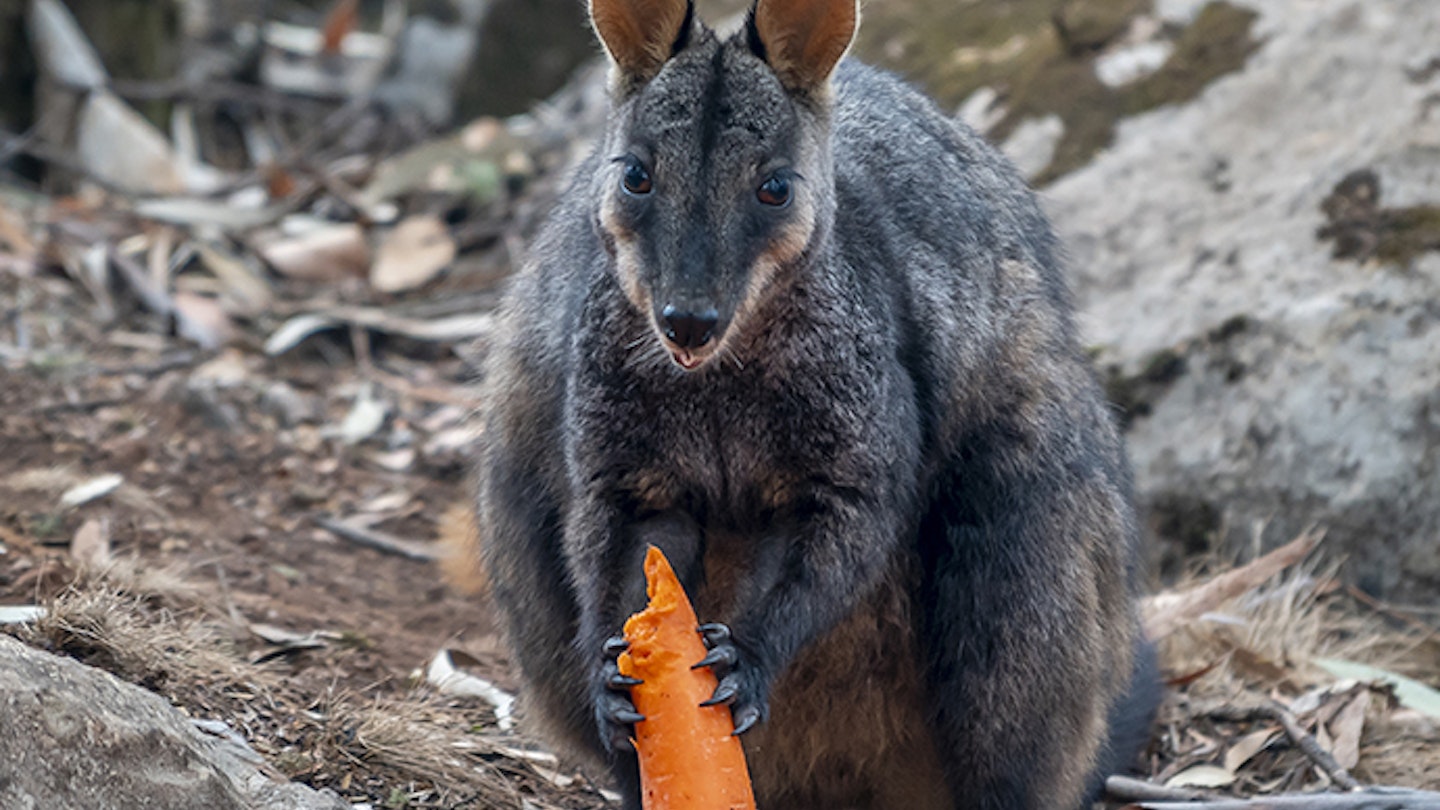Support for Brush-Tailed Rock-Wallabies Affected by Bushfires
We have all been saddened by the loss of wildlife during the Australian bushfires, so the news that the country is taking steps to provide food for brush-tailed rock-wallabies affected by the devastation is welcomed.

These marsupials live on rocky escarpments, granite outcrops, and cliffs. The New South Wales government has initiated a mission called Operation Rock-Wallaby to help them in the aftermath of the bushfires. According to Matt Kean, minister of energy and environment, the NSW National Parks and Wildlife Service have dropped thousands of kilograms of sweet potatoes and carrots from helicopters to feed animals in various colonies.
The colonies affected include those in the Capertee and Wolgan valleys, Yengo National Park, Kangaroo Valley, and Jenolan, Oxley Wild Rivers, and Curracubundi national parks. These food drops are expected to be a short-term measure. Therefore, it is unsustainable to allow wildlife to become dependent on human feeding.

The aim is to provide supplementary food supplies until natural food resources and water replenish in the areas affected. Cameras are also being set up to monitor the uptake of food and the variety of animals present, given that half a billion animals have been impacted by the fires in NSW alone.
“The provision of supplementary food is one of the key strategies we are deploying to promote the survival and recovery of endangered species like the brush-tailed rock-wallaby,” Matt Kean stated. “Initial fire assessments indicate the habitat of several important brush-tailed rock-wallaby populations was burnt in the recent bushfires. The wallabies typically survive the fire itself; however, they are then left stranded with limited natural food as the fire destroys the vegetation around their rocky habitat.”




